‘I want people to taste Palestine’: Eman Aburabi of Izz Café on new cookbook
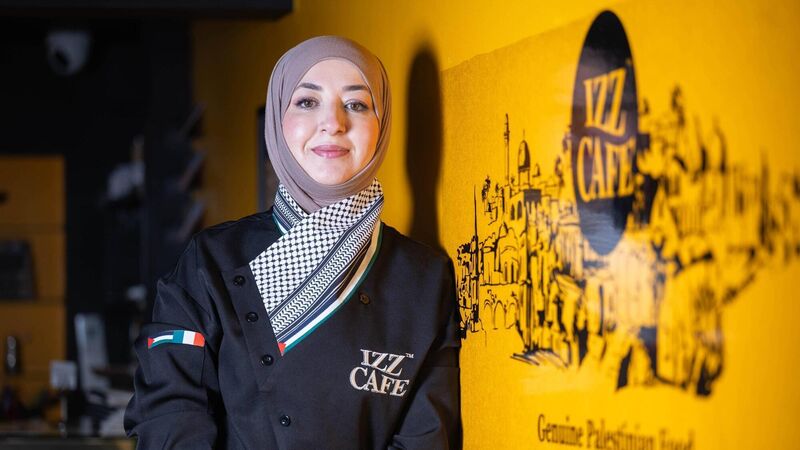
Eman Aburabi, co-owner of Izz Café in Cork City and co-author of Jibrin. Photo: Joleen Cronin
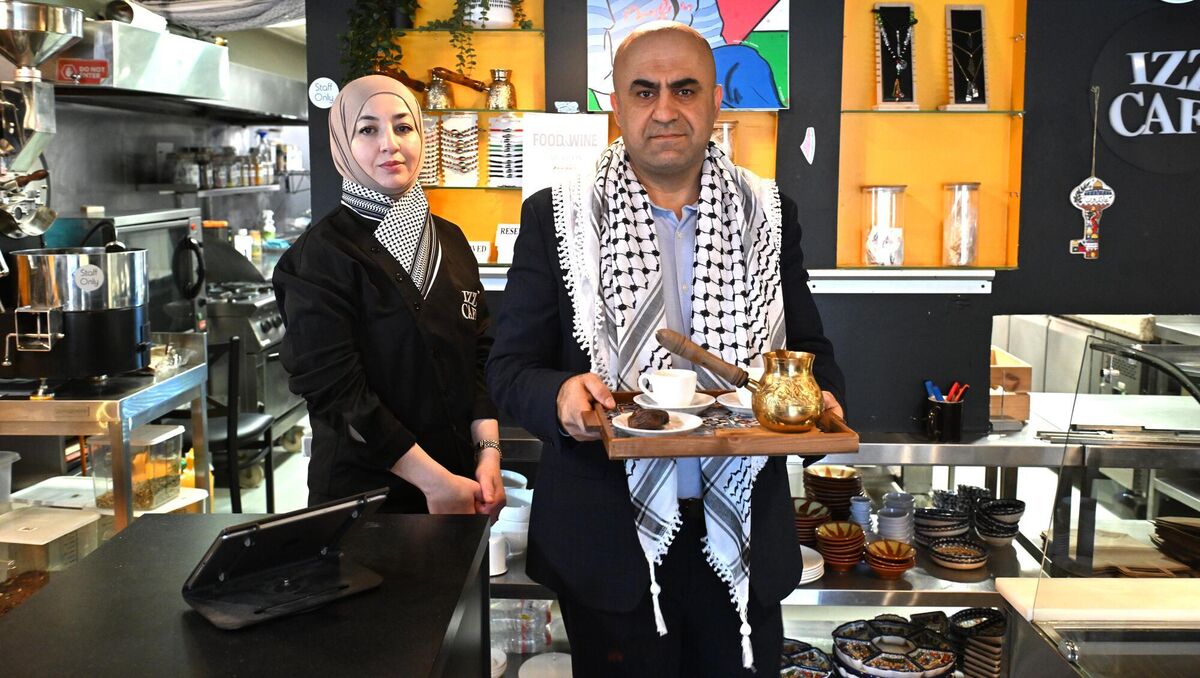
Jibrin is the 15th cookbook from Blasta Books that amplify voices, recipes and cultures of Ireland’s new diaspora, and the first collection of recipes from husband-and-wife duo Izzeddeen Alkarajeh and Eman Aburabi, founders of Izz Café in Cork.
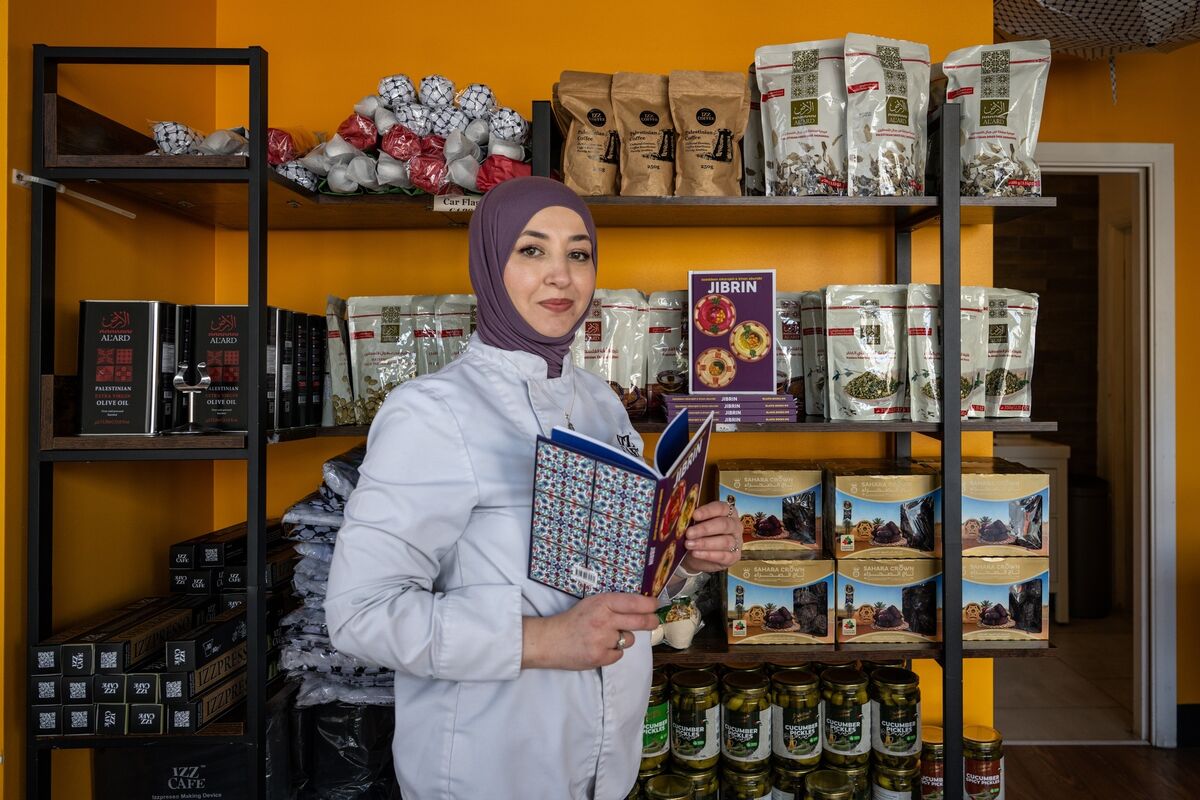
“I don’t like to change the traditional way to cook [a dish]. If I want to cook Musakhan (sumac chicken and onions on flatbread), I always try to do it how it has always been done because I feel it’s the real taste - the first taste.”
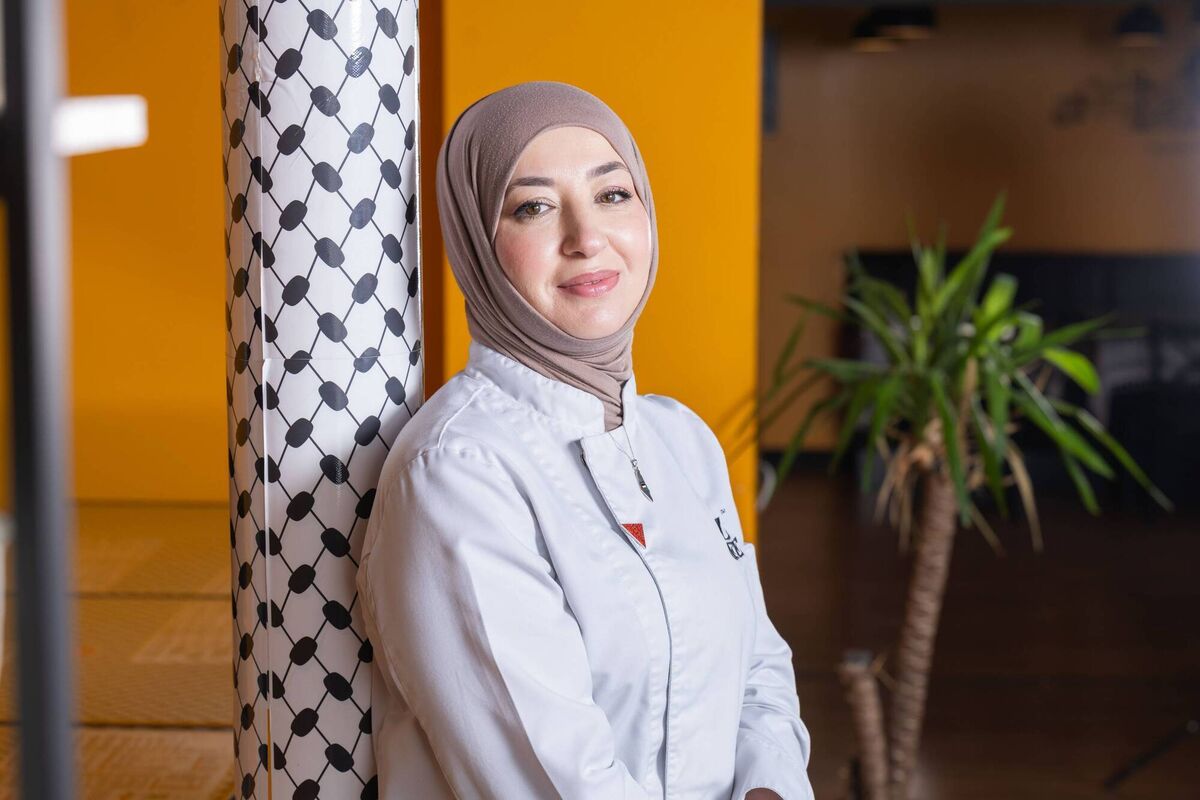
Habib Alostaz is from Gaza and works as a chef at Izz Café. Eman and Habib have learned from each other about the different dishes from coastal Gaza to inland Hebron and even the desert cuisine of Jordan. But the fragmentation of Palestine is reflected in a sometimes fragmented knowledge of regionalised dishes.
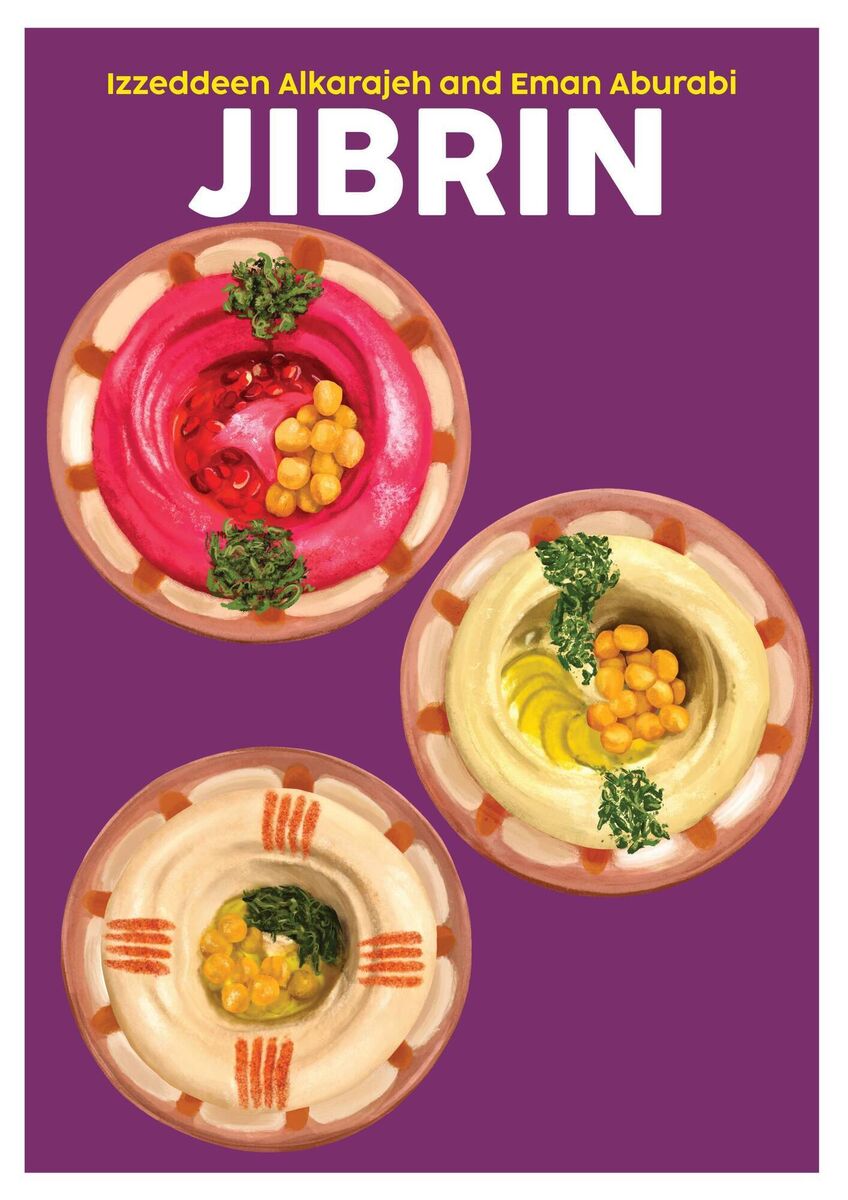
Jibrin contains just 29 recipes from a cuisine that’s ancient and diverse, and many will be familiar to café regulars: Magloubeh, Dawali, Manaeesh za’atar, Musakhan, Nabulsi knafeh.
- 1 fresh green chilli, finely diced
- 1 garlic clove, finely diced
- 1 tbsp olive oil, plus extra to garnish
- 1 lemon
- 3 ripe tomatoes, finely diced
- ½ cucumber, finely diced
- 1 bunch of fresh dill, chopped
- 1 sprig of fresh mint, leaves chopped, plus extra to garnish
- pinch of salt
- Put the green chilli and garlic in a pestle and mortar and pound together into a paste. Add the olive oil and mix to combine.
- Cut a small, thin ‘cheek’ off of one side of the lemon, then dice it very finely, rind and all.
- Add the diced lemon to the pestle and mortar along with the tomatoes, cucumber, dill and mint. Gently crush everything together – you’re not pounding here, as you want the vegetables to keep their texture. Add a pinch of salt and a squeeze of lemon juice, then stir them in with a spoon.
- Transfer to a serving bowl and finish with a generous drizzle of olive oil.
- Garnish with a small sprig of mint and serve fresh.






 App?
App?


